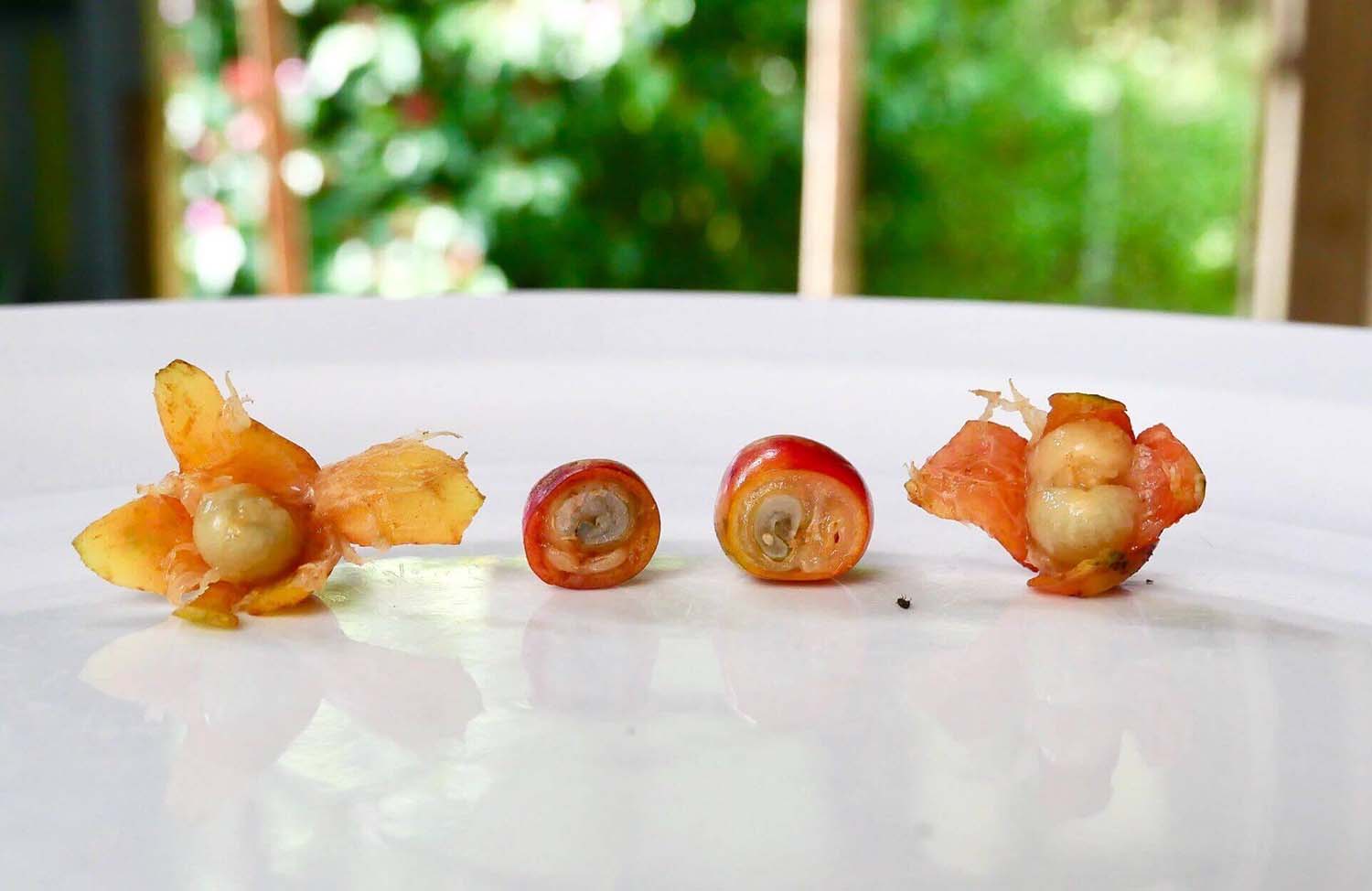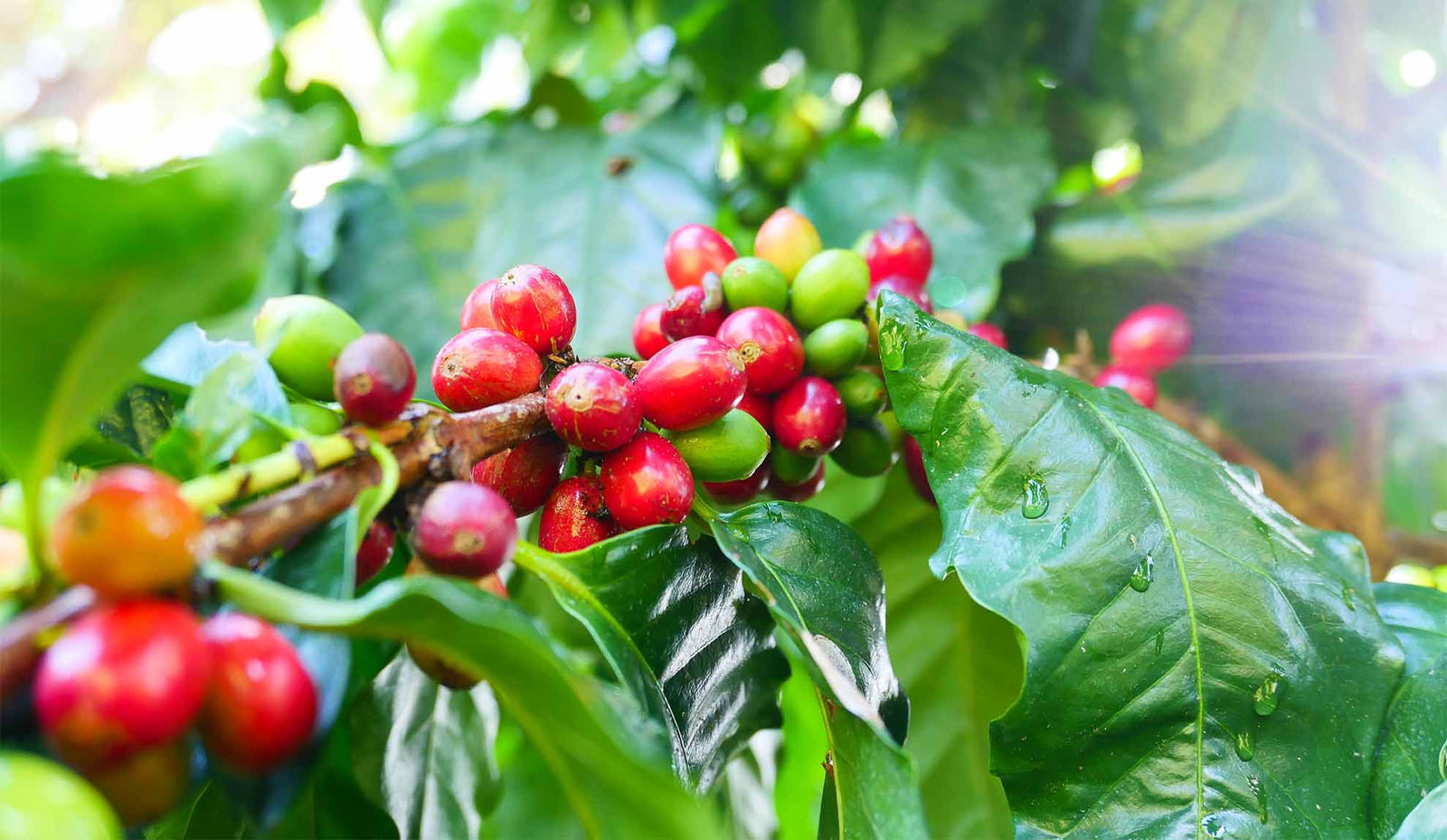While we don't choose to use conventional pesticides, herbicides, or fungicides on our coffee, we profoundly understand why one would. When a farmer is deciding on how to resist a fungus or a pest, making the wrong choice can literally cost a farmer his/her livelihood. (How wouldyoureact if making the wrong choice could cut your salary in halfandcost thousands of dollars?) On our farm, we've been fortunate that no pest or disease has been so devastating to warrant making that difficult choice.
In researching the inorganic chemicals commonly applied to coffee, we came across information we felt compelled to share. The following are questions which we (and maybe you?) have had about the effect of chemicals and applied to coffee.
Will The Chemicals, Pesticides, Fungicides, etc. Stay on the Coffee and End Up in My Cup?
According to the research, no, though it's fair to say the verdict is still out since nothing has been deemed conclusive. While residuals have certainly been found and measured on green unroasted coffee, based on what has been studied, these trace chemicals -- herbicides, fungicides and pesticides -- are burned off or rendered inert during the roasting process and therefore pose little to no risk to coffee drinkers. This has been noted in two studies, one conducted in Germany in 1984 and the other conducted in Japan in 2012.
The German study abstract summarizes as follows, "Since the residues detected in all of the roasted coffees were insignificant, no further investigation of the corresponding beverages was necessary." Likewise, researchers at the University of Tokyo report similar findings in their abstract: "We determined the residual rate after the roasting process. γ-BHC was not detectable at all, and more than 90% of chlordane was lost after the roasting."
I also consider the immense, process-heavy adventure coffee undergoes before reaching our lips: First, the fruit skin is removed and many of the residual agricultural chemicals, pesticides and fungicides go along with it. Then the coffee beans are soaked in water. The water is usually changed two or three times before the beans are removed, fermented and dried. Finally, the beans are roasted at temperatures well over 400 F, after which they're ground and steeped in near boiling water.
To conclude, Kenneth Davids of Coffee Review writes:
"Given this history of relentless attrition, it hardly seems possible that much if any of the small amounts of pesticide/fungicide residue permitted by law in green coffee ever make it into the cup... For the consumer, organic coffee may not offer quite the dramatic health advantage that many organic fruits and vegetables do... [S]omeone who drinks conventionally grown coffee appears to be taking at most a very slight, perhaps only hypothetical, risk of consuming traces of potentially harmful chemical residues."
Isn't Coffee Grown With Chemicals Bad For the Environment?
Our findings? Absolutely. From groundwater contamination, plant and animal species degradation, to direct and indirect adverse effects on human health -- the negative environmental and social impacts related to synthetic chemical use are well documented. It should be emphasized, however, that many of these problems arise from basic (albeit gross) misuse. Fertilizers (whether organic or synthetic), pesticides and fungicides are often overused, causing toxic exposure to workers and runoff that reaches streams, rivers and lakes. The farmers working with these various chemicals typically lack the necessary education and safety equipment for proper use, handling and storage. And it also common that agricultural chemicals in other countries are produced and used absent any health/safety regulations. Make no mistake, the hazards to the environment and the farm workers are real and numerous.
Residual Questions About Chemicals in Coffee
There is still plenty of room left for further research regarding both conventional and organic-grown coffee. There are two areas where we'd like to see more research conducted:
(1) Chemical residuals of roasted coffee: While the documented research is suggestive, more studies from multiple sources could develop a stronger, more precise understanding of how farming practices transfer (or don't) to the drinker. This information could also prove helpful in the broader area of agricultural food products.
(2) Coffee roasting emissions and air quality: If the residual chemicals are found in the green/roasted coffee but not the roasted, where do they go? How can they be "burned off" or rendered "inert"? Research has been conducted on the environmental impacts of coffee roasting emissions, but the focus has predominately been on SO2, CO, VOC, NOx, smoke, odor and particulates. We have yet to discover any data regarding residual pesticides, fungicides or herbicides. It's hard to imagine all the toxic and dangerous elements magically evaporating into the atmosphere without a thread attached to threat. But I love to be proven wrong.
If you have any information to share or corrections to suggest, please email: hello@bigislandcoffeeroasters.com
Want to learn more about coffee quality? Read our mycotoxin-free coffee blog here.




